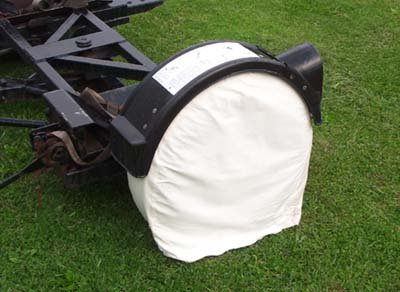colin_koehler
Great SCOTT!
Ok, Y'all have been towing longer than I have but I obsess about things. When I began towing I noticed the difference between trailer tires and normal tires: Trailer tires max PSI are listed for COLD inflation, however normal tires are not.
So with the tires on my Van rated at Max load @ 51 psi I set them at 44psi and check them again about 75-100 miles into the trip depending on how hot the day/pavement is and adjust as necessary. As for the trailer: If the side of the tire says 50psi COLD, I set them at 50 PSI COLD and leave them.
In doing my research I've found the 2 most common reasons for trailer tire failure is UNDER inflation and age.
Good info from Goodyear on trailer tires:
http://www.goodyear.com/rv/pdf/marathon_gen_info_032806.pdf
Have a safe and uneventful trip out to Spokane everyone!
So with the tires on my Van rated at Max load @ 51 psi I set them at 44psi and check them again about 75-100 miles into the trip depending on how hot the day/pavement is and adjust as necessary. As for the trailer: If the side of the tire says 50psi COLD, I set them at 50 PSI COLD and leave them.
In doing my research I've found the 2 most common reasons for trailer tire failure is UNDER inflation and age.
Good info from Goodyear on trailer tires:
http://www.goodyear.com/rv/pdf/marathon_gen_info_032806.pdf
· Industry standards dictate that tires with the ST designation are speed restricted to 65 MPH under normal
inflation and load conditions unless a different speed restriction is indicated on the sidewall of the tire.
· Based on industry standards, if tires with the ST designation are used at speeds between 66 and 75 mph, it is necessary to increase the cold inflation pressures by 10 psi above the recommended pressure for the load.
---Do not exceed the maximum pressure for the wheel.
---If the maximum pressure for the wheel prohibits the increase of air pressure, then the
maximum speed must be restricted to 65 mph.
---The cold inflation pressure must not exceed 10 psi beyond the inflation specified for the
maximum load of the tire.
Have a safe and uneventful trip out to Spokane everyone!


